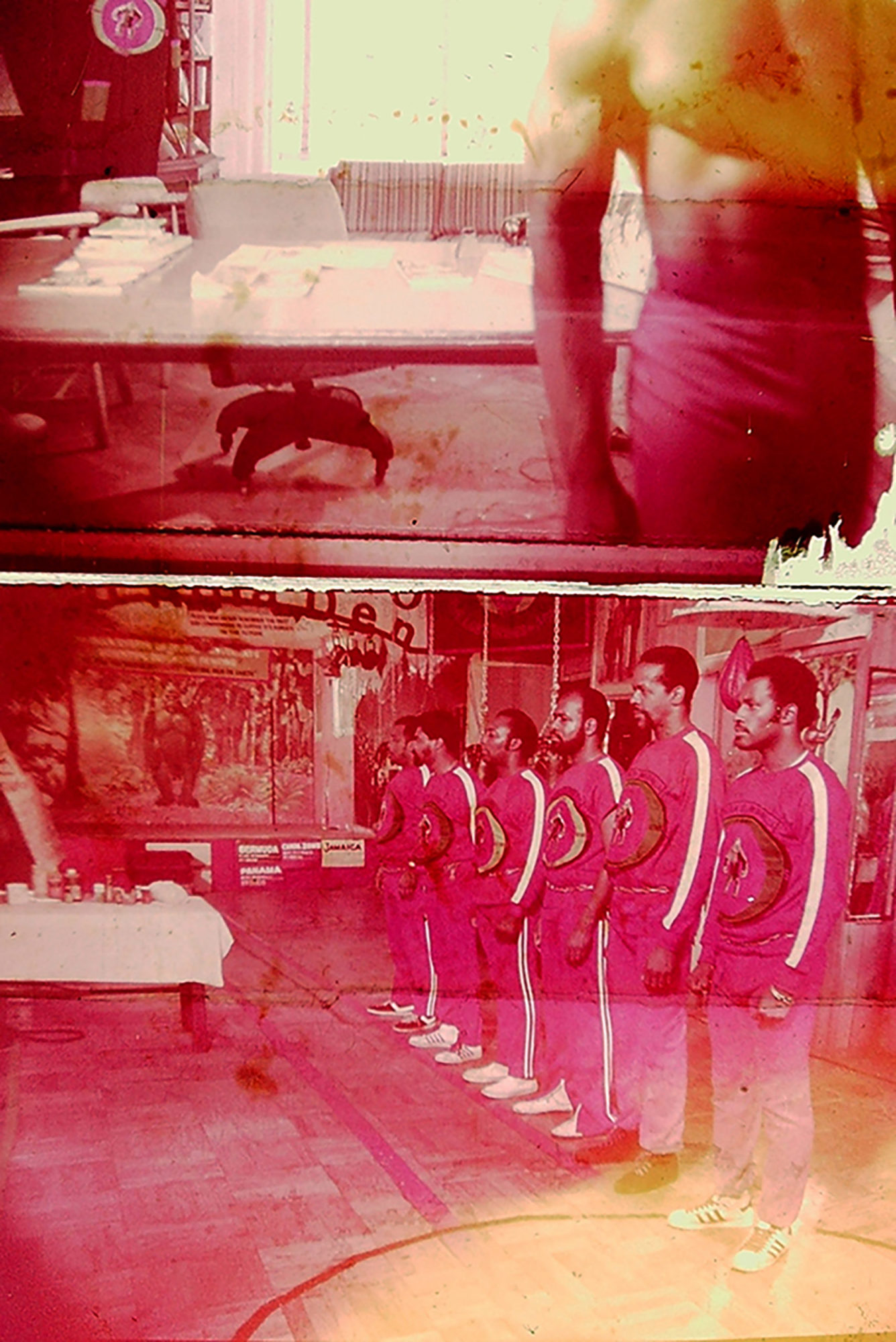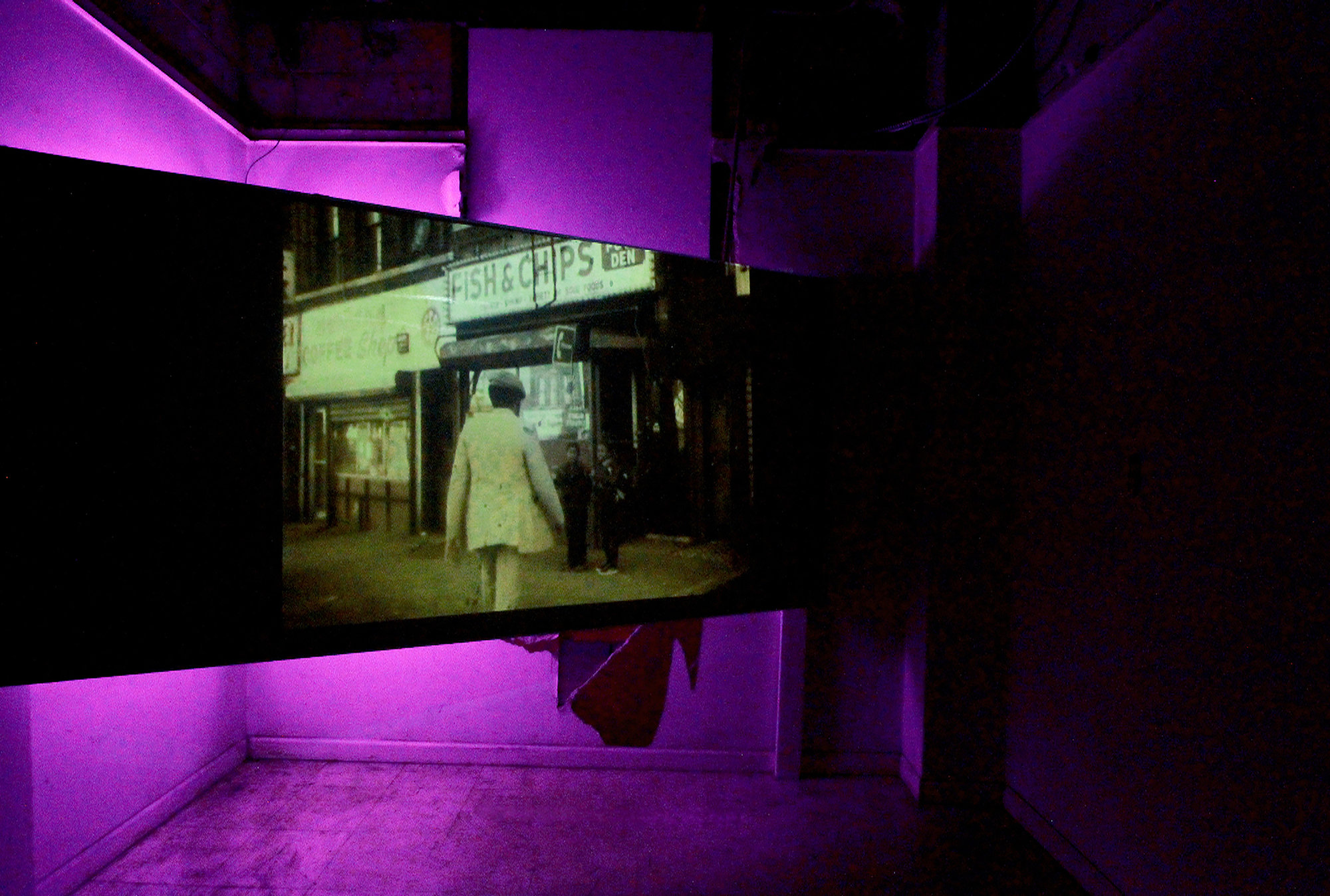Crystal Z Campbell

Crystal Z Campbell, Go-Rilla Means War, 2017 [courtesy of the artist]
Share:
Crystal Z Campbell refers to the smelly and decaying 35 mm film she stumbled upon in the Slave Theater as “a relic of gentrification.” The multimedia artist, filmmaker, and writer excavates historical secrets and reinserts them into public memory. Her work Go-Rilla Means War (2017) is an entry point to the historically black neighborhood of Bedford-Stuyvesant, Brooklyn—specifically the contested and fraught legacy of the Slave Theater. A seemingly unlikely site for civil rights demonstrations in the 1980s and 90s, the theater was the epicenter for press conferences and communal gatherings such as those in response to the 1989 killing of Yusuf Hawkins. The Slave, formerly the Regent Theater, was purchased by Judge John L. Phillips Jr.—also known as the Kung-Fu Judge—in 1984, initially to show his film Hands Across Two Continents. It transformed into a community space where murals covered the walls. The theater closed in 1998. Judge Phillips was diagnosed, allegedly, with dementia in 2001 amid a string of legal battles; the theater was sold in 2013 and demolished in 2016. The land is projected to be developed as a 10-story co-living and commercial mixed-use space.
The incomplete and unedited Go-Rilla Means War begins with two boys standing inside a barren room as an older man talks to them. Although the film’s director is officially unknown, we can surmise it to be the work of Judge Phillips. It has no original sound, and no record of the film’s intended plot is known. The film evolves into an investigation of sorts, ultimately ending in a quarrel among men in a building that appears to be a community center. Campbell adds elements to the raw footage, including piano music by Blind Tom, audio clips from alleged rape victim Tawana Brawley’s press conference, narration describing the destruction of Pompeii, and a semifictitious tale of a blind, enslaved woman named Nydia. She collapses the past and present to historically contextualize the legacy of the theater and the physicality of the crumbling film as a site of destruction and fortitude.
Crystal Z Campbell, Go-Rilla Means War, 2017 [courtesy of the artist]
Gentrification is systemically erasing Bed-Stuy’s Black history. Predatory realtors continually exploit longtime residents of the area into selling their homes, or homeowners become victims of elaborate theft. Go-Rilla Means War is an act of preservation and returns a piece history to Bed-Stuy’s residents; its black history is worth protecting. The archive is no longer research, as it is now reinserted into its community. With the Slave now destroyed, The Black Lady Theater—its sister establishment—currently experiencing its own legal woes, and aging residents being increasingly displaced, these remnants are vital for the future preservation of the neighborhood’s heritage.
Crystal Campbell, GoRilla Means War, 2017 [courtesy of the artist]

